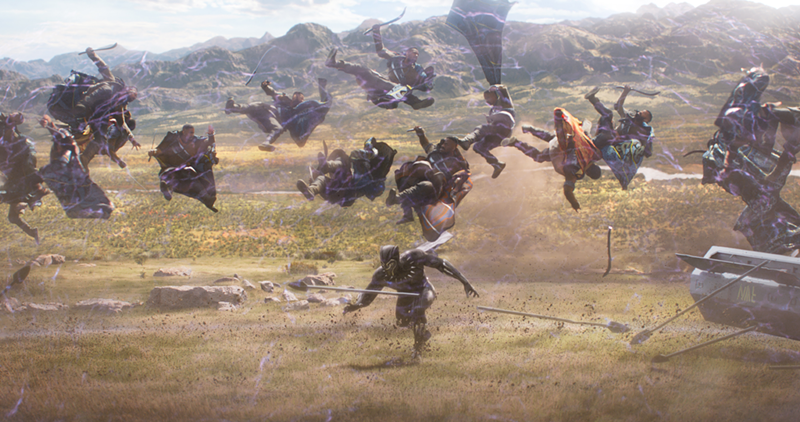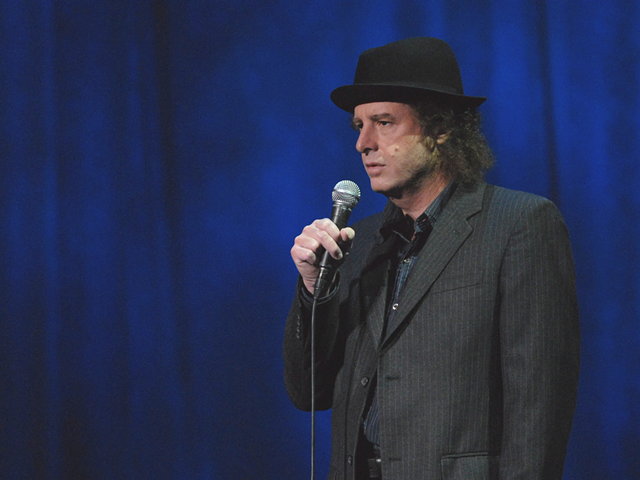Black Panther is more than just a hit movie — it’s a cultural sensation. Over Presidents Day weekend, Variety reports, it took in a record $235 million in North America and has now become a must-see movie for everyone. As a super-hero film based on a Marvel comic book, big opening-weekend numbers aren’t completely unheard of. But Black Panther isn’t just another Marvel success.
For the first time, African-American audiences, along with people of the African diaspora around the globe, get a celebratory vision of an African homeland with a glorious past and a role in shaping the future of civilization. We who comprise that audience also get a more meaningful realization of the complex debate regarding how we see and interact among ourselves. And we get to see Eurocentric outsiders as sidekicks and pawns in our central narratives.
And it’s a great film, too, as directed and co-written by Ryan Coogler, whose first feature was Fruitvale Station.
In the comic book story, Black Panther, also known as T’Challa, has returned to his African kingdom of Wakanda after engaging in outside conflicts involving psychological inversions, planet-devouring cosmic life forces and collapsing parallel universes only to find a nation divided. His subjects question whether or not he really is (or wants to be) Wakanda’s king. Along the way, he has to corral the spirits of Black Panthers past in order to unite his fragmented people and usher in a new democratic age.
In Coogler’s vision, Wakanda veers far and away from this notion — it’s an African kingdom that has escaped colonization and utilized its main resource (an alien metal known as vibranium) to create a technological haven, an advanced, hidden gem of a society that protected itself via isolationism and deception. As T’Challa, Chadwick Boseman (42, Get On Up), and Letitia Wright as T’Challa’s tech-wizard younger sister, Shuri, bring that world to life.
Of course, any nation seeking to thread this international needle does so at its own mortal risk. Black Panther has a gripping story that frames larger questions about that dilemma. To take over the throne, T’Challa has to fend off a challenge from within (Winston Duke’s rival chief M’Baku) and also from outside (Michael B. Jordan’s African-American soldier of fortune Erik Killmonger).
Coogler creates a startlingly approachable sense of double consciousness, crafting an entertaining Marvel Cinematic Universe installment for those who love that. It’s complete with the expected CGI action sequences and fun nods to James Bond-style global espionage hijinks.
But it’s also speaking to black audiences in a coded cultural language accented with musical, visual and narrative flair. The world of Wakanda becomes an Afrofuturistic dreamscape. Talk about black to the future. Too often, we’ve been presented with visions of timelines without people of color, as if we never existed in the first place — never enslaved, never abused by the hands of oppressors and never turned into second-class citizens by the arbitrary application of the rules of law.
What’s particularly fascinating and important about Coogler’s film is that it’s able to assert so much black power not just on the screen but also behind the scenes. He’s found a sweet spot that allows for greater integration and opportunity for others, seen in the dynamic and alluring costume designs of Ruth E. Carter (Malcolm X and Selma) and the gorgeous cinematography of Rachel Morrison (the first female Academy Award nominee in that category for her work on Mudbound).
As penned by Coogler and co-screenwriter Joe Robert Cole, there is an underlying sense of urgency to the story. And we get the strong warrior women of the Dora Milaje, who protect the crown, much like Wonder Woman’s Amazonian legion on Themyscira. There is an elevation in their impact on the social order that acknowledges the fierce female intelligence behind the society’s technological advancement.
This cinematic version of Black Panther weaves seemingly disparate strands together rather seamlessly, presenting more than enough comic book acrobatics and mayhem to satisfy the core fan base.
Yet it also speaks a necessary degree of truth to power about the responsibility such a fictional nation might have to its scattered kin across the globe. And it is impossible to miss the message T’Challa receives at the end of the film: the call to engage. It is a lesson for us all. And, as the opening box-office numbers show, we’re all hearing it. (Now playing) (PG-13) Grade: A






